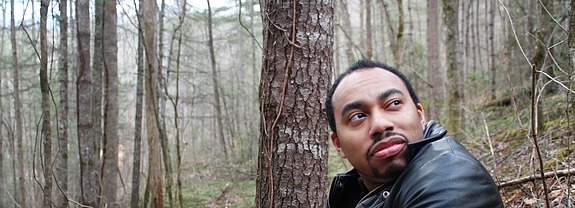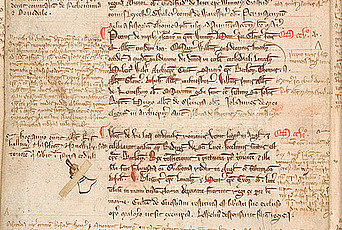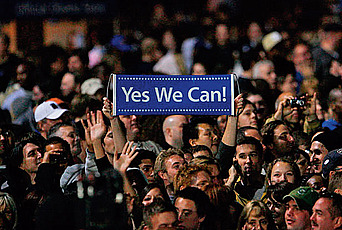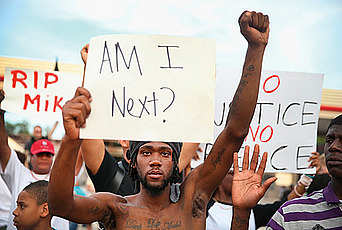Q&A with Cord Whitaker

In 2019–20, Cord J. Whitaker, Member in the School of Historical Studies and Associate Professor at Wellesley College, is interested in the history and development of race and racism in medieval English literature.
What drew you to this field initially?
During my undergraduate career at Yale, I fell in love with medieval literature and Middle English language. It was only much later, during my graduate career that I noticed something unexpected in the medieval romances I was studying for their implications regarding gender and medieval popular understandings of theology. These romances, it appeared, were quite interested in the development of identity—religious, geographical, and physiognomic. The dynamics I found reminded me quite a bit of what I knew to be the dynamics regularly employed in race and race-making in modernity.
Why IAS?
The Institute for Advanced Study offers me the opportunity to research in the company of fellow medievalists and other pre- and early modernists in the School of Historical Studies as well as colleagues in the School of Social Science who can speak to the seminal role of sociology in the development of critical race studies. The variety of expertise represented by IAS's community of scholars is integral to my current project, which examines medievalism not only in the literature of the Harlem Renaissance but also in the period's sociological work such as that of W.E.B. Du Bois and the philosophical writings of scholars such as Alain Locke.
Where is your favorite place to think?
My favorite place to think is near bodies of water, especially at the seashore. The calming swell and crash of the waves frees my mind to identify and explore connections—between texts, rhetorical devices, historical events, concepts, and ideologies—that have not yet been adequately explored.
What do you hope the impact of your research will be now or in the future?
My research offers scholars, activists, and community organizers a new way to see race—as a rhetorical practice with historical roots that extend back well beyond the periods of Enlightenment science and American slavery to which it is often attached. My book Black Metaphors helps its readers understand the rhetorical and logical processes that went into creating race and racism.
My research offers scholars, activists, and community organizers a new way to see race—as a rhetorical practice with historical roots that extend back well beyond the periods of Enlightenment science and American slavery to which it is often attached.
Take, for example, the rhetorical device enthymeme, in which a proponent strengthens her position by inducing readers to presume a hidden premise and then presenting that premise's logical conclusion as a natural fact that relies on no premise at all. Enthymeme is a major element in racial ideology. When scholars, activists, and organizers are well versed in the deep rhetorical, logical, and ultimately psychological processes that undergird racism, they can develop effective strategies for studying them, disrupting them, for breaking the line of reasoning that takes as a hidden premise that blackness is a sign of spiritual depravity. No longer does the conclusion that black people are inclined to criminality, or otherwise inferior, appear natural.
My research, especially The Harlem Middle Ages, also aims to show readers the value of the Middle Ages to the work of racial justice. When Harlem Renaissance authors and intellectuals deployed the supposedly white Middle Ages in order to stake African Americans' claim to the entirety of the English literary and historical canons, they modeled the use of the Middle Ages and medievalism to shape politics and culture.
How do you describe your work to friends and family?
I tell friends and family that my work, especially my current project, unearths and examines the role of the Middle Ages in modern race; that, without the Middle Ages, the world as we know it, especially for black Americans, would not exist; and that Harlem Renaissance intellectuals, such as W.E.B. Du Bois, Jessie Redmon Fauset, and Alain Locke, among others, used the idea of medieval Europe—so wildly popular in the nineteenth-century America and Britain of their youth—to stake a black claim to the entirety of the American and English literary and cultural canons.
What other activities or subject areas do you enjoy?
In addition to enjoying medieval and African American literatures, I am an avid connoisseur of black musical forms—jazz, gospel, R&B, and hip-hop. I sing African American gospel music, and I have performed chorally and as a soloist with a number of groups over the past several decades. I also enjoy political analysis, and I am the founding co-editor-in-chief of The Spoke, the blog of the Madeleine K. Albright Institute for Global Affairs.


